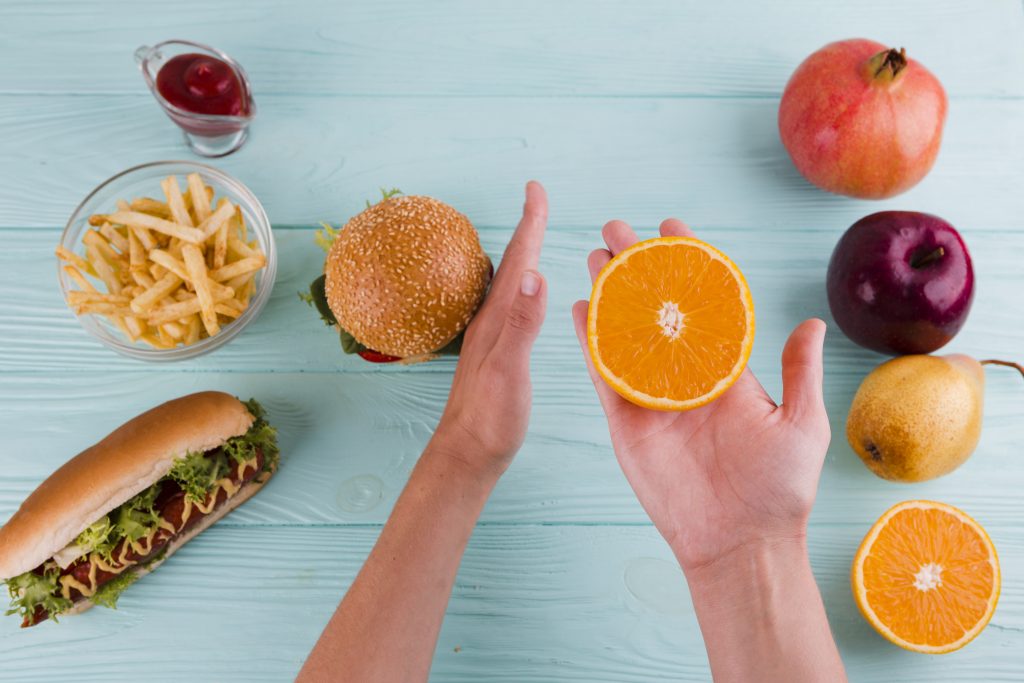How to Avoid Cancer Through Food: A Guide to Healthy Eating
Cancer is a complex disease influenced by genetic, environmental, and lifestyle factors. While no food can guarantee complete protection against cancer, certain dietary choices can significantly reduce the risk. By understanding the powerful relationship between diet and health, you can make informed decisions to protect your body. Here’s a guide to using food as a tool to lower your cancer risk.
1. Embrace a Plant-Based Diet
Fruits, vegetables, whole grains, and legumes are rich in fiber, antioxidants, and phytochemicals—natural compounds that protect cells from damage. Studies show that diets high in plant-based foods help lower the risk of various cancers, particularly colon, stomach, and breast cancers.
- Cruciferous Vegetables: Broccoli, cauliflower, kale, and Brussels sprouts contain compounds like sulforaphane, which may have anti-cancer properties. Including them in your meals several times a week can contribute to cancer prevention.
- Leafy Greens: Spinach, kale, and arugula are loaded with vitamins, minerals, and antioxidants like beta-carotene and lutein, which protect against cell damage.
- Berries: Blueberries, strawberries, and raspberries are packed with antioxidants, such as vitamin C and anthocyanins, which help combat oxidative stress and inflammation, both of which are linked to cancer development.
2. Incorporate Fiber-Rich Foods
Dietary fiber helps keep your digestive system functioning optimally and may lower the risk of colorectal cancer by promoting regular bowel movements and aiding the elimination of waste and carcinogens from the body.
- Whole Grains: Choose brown rice, quinoa, oats, and whole wheat products over refined grains like white bread or pasta. Whole grains contain essential nutrients and are a great source of fiber.
- Legumes: Beans, lentils, and chickpeas are high in fiber and protein and have been shown to reduce the risk of colorectal cancer.
3. Limit Processed and Red Meat
Processed meats such as bacon, sausages, and deli meats have been classified as carcinogenic by the World Health Organization. High consumption of red meats, like beef and pork, is also associated with an increased risk of colorectal cancer. Reducing your intake of these foods or opting for plant-based proteins can lower your cancer risk.
- Opt for Lean Proteins: Try to replace red meat with fish, poultry, or plant-based proteins like tofu, tempeh, or legumes. These alternatives are not only lower in cancer-causing compounds but also promote heart health.
4. Reduce Sugar and Refined Carbs
Diets high in sugar and refined carbohydrates can lead to obesity, which is a major risk factor for many types of cancer, including breast, colon, and kidney cancers. Instead, focus on foods with a low glycemic index that provide sustained energy and prevent spikes in blood sugar.
- Choose Whole Fruits Over Fruit Juices: Whole fruits contain fiber, which helps regulate blood sugar levels, while fruit juices often contain added sugars and lack fiber.
- Switch to Complex Carbohydrates: Whole grains, legumes, and vegetables provide energy without the blood sugar spikes associated with refined carbs.
5. Include Healthy Fats
Not all fats are bad for you. In fact, some fats can reduce inflammation, a key factor in cancer development. Focus on unsaturated fats and omega-3 fatty acids, which have been linked to a lower risk of cancer and improved overall health.
- Nuts and Seeds: Almonds, walnuts, chia seeds, and flaxseeds are great sources of healthy fats and contain fiber and antioxidants that can help fight cancer.
- Fatty Fish: Salmon, mackerel, and sardines are rich in omega-3 fatty acids, which have been shown to reduce inflammation and may lower the risk of cancer.
6. Stay Hydrated with Water and Herbal Teas
While it’s essential to drink enough water to maintain overall health, certain beverages can also provide cancer-fighting benefits.
- Green Tea: Packed with antioxidants like catechins, green tea has been studied for its potential anti-cancer effects, particularly in reducing the risk of prostate, breast, and lung cancers.
- Avoid Sugary Beverages: Soda, energy drinks, and other sugary beverages contribute to weight gain and increase the risk of cancer-related to obesity. Opt for water, herbal teas, or fresh juices with no added sugars.
7. Moderate Alcohol Intake
Alcohol consumption is linked to an increased risk of several cancers, including liver, breast, and colorectal cancer. If you choose to drink alcohol, do so in moderation—up to one drink per day for women and two drinks per day for men.
8. Spices and Herbs: Nature’s Cancer Fighters
Certain spices and herbs have been studied for their cancer-preventive properties. Incorporating them into your meals not only adds flavor but also provides health benefits.
- Turmeric: This vibrant yellow spice contains curcumin, which has been shown to inhibit cancer cell growth and reduce inflammation. Add it to curries, soups, or smoothies for a health boost.
- Garlic and Onions: These pungent vegetables contain sulfur compounds that may protect against stomach and colorectal cancers. Regular consumption of garlic and onions has been associated with a lower risk of cancer.
Conclusion: A Balanced Approach to Cancer Prevention
Preventing cancer is not about focusing on one miracle food, but rather adopting a well-balanced diet that emphasizes whole, nutrient-rich foods while avoiding processed, high-sugar, and fatty foods. By making thoughtful food choices, you can lower your cancer risk and improve your overall health. Remember, food is just one part of a comprehensive cancer prevention strategy, which should also include regular exercise, maintaining a healthy weight, and avoiding smoking and excessive alcohol consumption.

